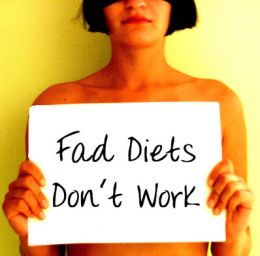
When losing weight your health should be your number one concern and that means steady and safe weight loss through a balanced and sensible diet and exercise plan and we have asked the fantastic Nutritionist Kathleen Alleaume to write a piece outlining the health issues of the diets which claim to get you quick results from cutting out certain food groups.
The Health Issues of Losing Weight the Wrong Way
We all know that having a baby changes your life, not to mention your body (sigh!). That said, many women are eager to snap back into shape after giving birth! And whilst it’s all too easy to compare ourselves to the Hollywood celebrities who routinely melt away the kilos within weeks (whom, mind you, have an entire workforce at their disposal: nannies, cleaners, personal trainers and chefs), it’s hardly surprising that women feel compelled to shed the weight in same amount of time.
Adding to the difficulty is the abundance of fad diets that tempt and confuse us, and often the outcome is usually the same: you get results in the short-term; but not worth the benefits in the long run.
Let’s take a closer look at two popular fad diets, such as the Atkins or Dukan (aka low-carbohydrates/high-protein diets), which appeal to many because you see results very quickly. Unfortunately though, higher protein/low-carb diets are unbalanced nutritionally and fail to follow healthy eating guidelines.
For example, foods that are typically restricted include fruit, bread, grains, starchy vegetables and dairy products other than cheese, cream or butter. Restricting these foods means it’s difficult to get adequate amounts of vitamins, minerals and disease-fighting antioxidants. Also, these diets encourage an excessive intake of saturated fat, which is linked to an increased risk of cardiovascular disease, cholesterol, type 2 diabetes and high blood pressure.
Other than presenting a nutrient deficiency, the rapid weight loss often associated with high-protein/low-carb diets may cause possible health-risks including, dehydration, fatigue, constipation, menstrual irregularities, dizziness, hair loss, muscle loss and electrolyte imbalance.
So, a common question I often get asked is “what is the best diet?” Unfortunately, there’s no simple answer to this question – because there’s no such thing as a one-size-fits-all approach. However, what I do know is that there’s no secret to weight loss: it all boils down to one very simple equation – kilojoules in minus kilojoules out. What’s more, there is strong evidence to suggest that people who lose weight gradually and steadily (about ½ – 1 kilo per week) are more successful at keeping the weight off – which is why the Lose Baby Weight plans are ideal for mums to follow.
Why slow and steady weight loss wins the race
Weight maintenance.
Losing weight too quickly will slow down the metabolism, and eventually you’re eating fewer kilojoules but not losing weight. On the other hand, slow and steady weight loss will ensure metabolism efficiency – an efficient metabolism is the key to fat burn.
Improved eating habits.
When you approach your weight loss efforts at a slow and steady pace, you give yourself time to learn and adjust your eating habits (both mentally and physically) without depriving yourself of necessary nutrients. For example, you’re snacking on fruit instead of biscuits, you’re eating at regular times and not skipping meals, you’re drinking more water, rather than soft drinks. These simple dietary swaps contribute in many ways to good health and nutrition.
Prevent muscle loss.
Rapid weight loss is not fat loss. Rapid weight loss is usually a loss of fluid or muscle, rather than body fat. If you choose to lose weight at a slower rate, not only will you lose inches, but you will prevent muscle loss and ultimately achieve a leaner and firmer figure.
Bottom line: To make long-lasting improvements to your weight (and better still, your health!), you need to make long-lasting changes to your lifestyle. So, rather than trying different fad diets, I always advocate finding an eating plan that suits your body, lifestyle and your eating habits. This includes making small changes that can be sustained which are most likely to lead to improved health over time.
To see the 28 Day Breastfeeding Friendly Diet & Exercise Plan which Kathleen created all recipes for and which advocates sensible and steady weight loss Plus see our Healthy Mummy range of smoothies here
Kathleen Alleaume is a Nutritionist and Exercise Physiologist, and the Author of What’s Eating You?
